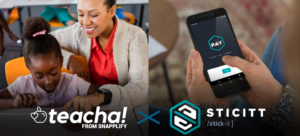Inclusive Education: Tips for the classroom
Worldwide, we are finding ways to accommodate learners with various specific learning differences. Inclusive Education helps us to think of the needs of our learners and to find ways of adapting our classrooms to support their needs as best we could.
The Autism Spectrum may include a diagnosis such as Asperger syndrome, verbal and non-verbal forms of Autism. An important part of our year would be to plan ahead and to be proactive in avoiding troublesome situations.
Ensure that the learner knows what to expect by having the classroom timetable visible on an electronic device, the desk or the wall. Try to have a laminated, Velcro version of the schedule – with loose subject squares to move around as needed. Forewarn the learner of changes to the day or special occasions by writing on a blank, laminated card. Websites such as Boardmaker and SENteacher.org offer online services where you could find symbols to add to schedules or worksheets. A set of familiar symbols could help the learner to feel secure and confident in the task at hand. Some learners react well to social stories – which are very simple explanations of how to do or not to do something, e.g. How to ask a friend to play, When to wear a raincoat, What to do when I am lost, etc. One could adapt and change these stories as situations arise.
Learners with sensory sensitivities may be sensitive to the texture of fabric (such as the tags on clothing) or paper, the sounds of a marker on paper, a raincoat moving, the sound of a malfunctioning intercom system or the fire bell. Some learners could be sensitive to smells and tastes, but we could find ways around those sensitivities. In collaboration with a trained occupational therapist, one could find ways to clip paper to a clipboard rather than touching it, test different kinds of markers, use gloves, try noise-cancelling headphones or have earplugs on hand.
Learners with Apraxia might struggle to communicate and to speak clearly. Their family members and close friends are often able to understand their speech, but strangers would have difficulty doing so. Giving these learners alternative times or ways to share presentations and orals – even the option of recording an oral in a quiet space to play later or presenting to a trusted group of friends might make the activity easier to complete. Having the option of AAC (Augmentative and Alternative Communication) devices available can greatly improve these learners’ ability to clarify what they would like to say. Nowadays, applications can be loaded onto tablets or even smartphones – to make it easily accessible and very effective.
Learners who are hard of hearing would benefit from having hearing aids and an FM system to enhance the sound in the classroom. Some devices can lay flat on the table during group work and others need to hang close to the neckline – away from buttons and jewellery. When playing video clips in the class, try to find the closed captioning (marked with a “CC”) function to turn on. Ensure that the learner would have the opportunity to read your lips by facing him or her during explanations, enunciating clearly and by trimming facial hair away from the lip line. Ask for a copy of the audiogram and talk to the audiologist about the best ways to utilise the FM system.
Learners with executive functioning difficulties might have trouble with their daily routines, such as completing activities, planning and organizing tasks. This may be relevant to many learning differences. Having their schedules ready and visible, routines clearly explained, subjects colour coded (e.g. each book, shelf and basket marked with the same colour per subject) and quick check-ins throughout the day is very helpful. Writing homework down from the board or remembering to pack sports clothes, might be some of the struggles these learners face and would need help in. Staple a reminder around the handle of the schoolbag or send a picture of the homework home via a classroom webpage (e.g.Google Classroom) or app (e.g. SeeSaw). Older learners would benefit from a calendar reminder of due dates – which you could load onto web calendars such as Google Calendar.
Learners with writing or fine motor difficulties might struggle to write legibly – despite all kinds of support from the teacher and occupational therapist. Having the occupational therapist recommend an appropriate, rubber pencil grip, could help to correct finger placement. If the writing remains unclear, the learner could try alternative ways of writing – such as in block letters or cursive writing. Ask the occupational therapist for customised ideas and check in regularly.
Learners with spelling and reading difficulties might benefit from speech-to-text options. Have them speak to the word processing program and the words should appear on the screen. Should you have learners with reading difficulties, one could invest in apps such as Claro Scan Pen and Office Lens. Use add-ons such as Read&Write for Google Chrome to read documents on Google Docs and add-ons such as SpeakIt! to listen to the selected text. Use computer functions such as Dictation & Speech (Text to Speech) – should your computer have it. Access websites like Rewordify to find synonyms for more difficult words.
Always connect parents, therapists and staff members to brainstorm, to gain insight and to ask for advice. Support the learner in becoming independent in the use of assistive technology and to advocate for themselves. Ask them to share techniques or accommodations that work best. Having an open line of communication is a large part of ensuring that Inclusive Education works well.
Once you start looking into possible adaptations or accommodations, you’ll start thinking of other learners who might benefit from similar support and soon it might become second nature. Inclusive Education will not merely be an educational approach but would become a way to create a collaborative and healthy educational community for all.
Read more about the learning differences and resources mentioned in the article at these websites:
- AARSA
- AAC
- Executive Functioning
- Included
- Autism South Africa
- My Klaskamer: Inklusiewe Onderwys
- South African National Deaf Association
Read this article and more in the free Teacha! Magazine – released every term.



